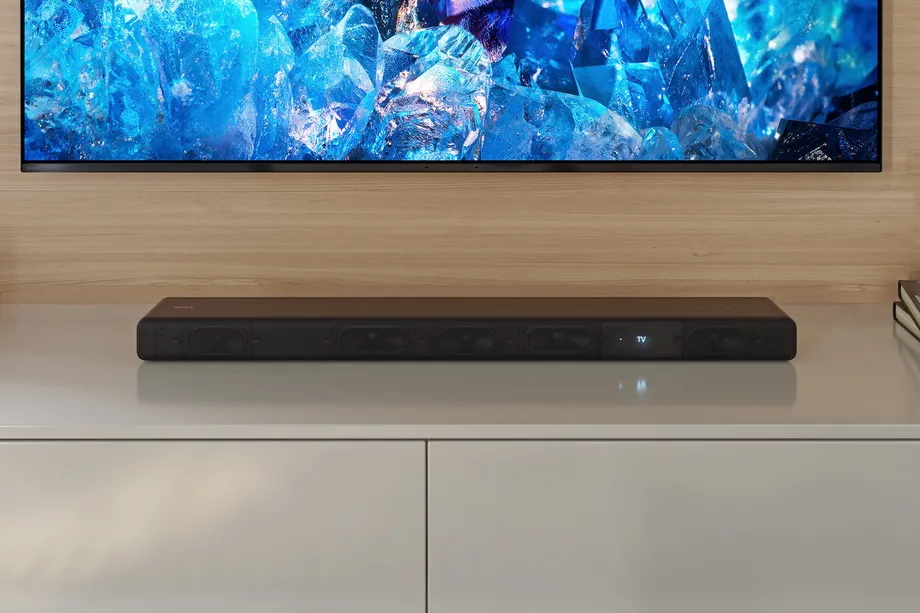
Sound format support: Dolby Atmos, DTS:X, PCM
Streaming: Apple AirPlay 2, Chromecast
Voice control: Google Assistant, Alexa
Dimensions (hwd): 6.4 x 95 x 13cm
Sony's budget soundbar isn't as compelling as the more expensive models in the same range, but still offers plenty of bang for buck. You get a display, plenty of audio formats, and decent – if unremarkable – sonic performance.
For
- Clear dialogue
- Solid dynamics
- On-screen menu system
Against
- Sound projection lacks impact
- Height channels are weak
Sound format support: Dolby Atmos, PCM
Streaming: Apple AirPlay 2
Voice control: Google Assistant, Alexa
Dimensions (hwd): 7 x 65 x 10cm
The Beam Gen 2 is smaller and lighter than the HT-A3000, yet packs a more impactful, immersive sound. It also has multiroom skills up the wazoo, plenty of features, a fantastic app and in-built voice assistants. For most people, this is a no-brainer.
For
- Effective handling of Dolby Atmos
- Warm, refined sound
- Streaming smarts
Against
- No additional HDMI ports
- Doesn’t support DTS:X
If they have just shelled out hundreds – or even thousands – on a new TV, many people are hesitant to spend a lot on a soundbar. We get it. Every TV has built-in speakers, so a soundbar might be seen as superfluous, especially when money is tight. But even a cheap soundbar can be a vast improvement on your TV's weak audio, making for a much more satisfying viewing experience.
The current king of the budget end is the Sonos Beam (Gen 2), which won a What Hi-Fi? Award last year. Its latest challenger is the Sony HT-A3000, the most affordable model in Sony’s HT-A series. Both boast Dolby Atmos, and both cost about the same. But which comes out tops?
Sony HT-A3000 vs Sonos Beam Gen 2: price
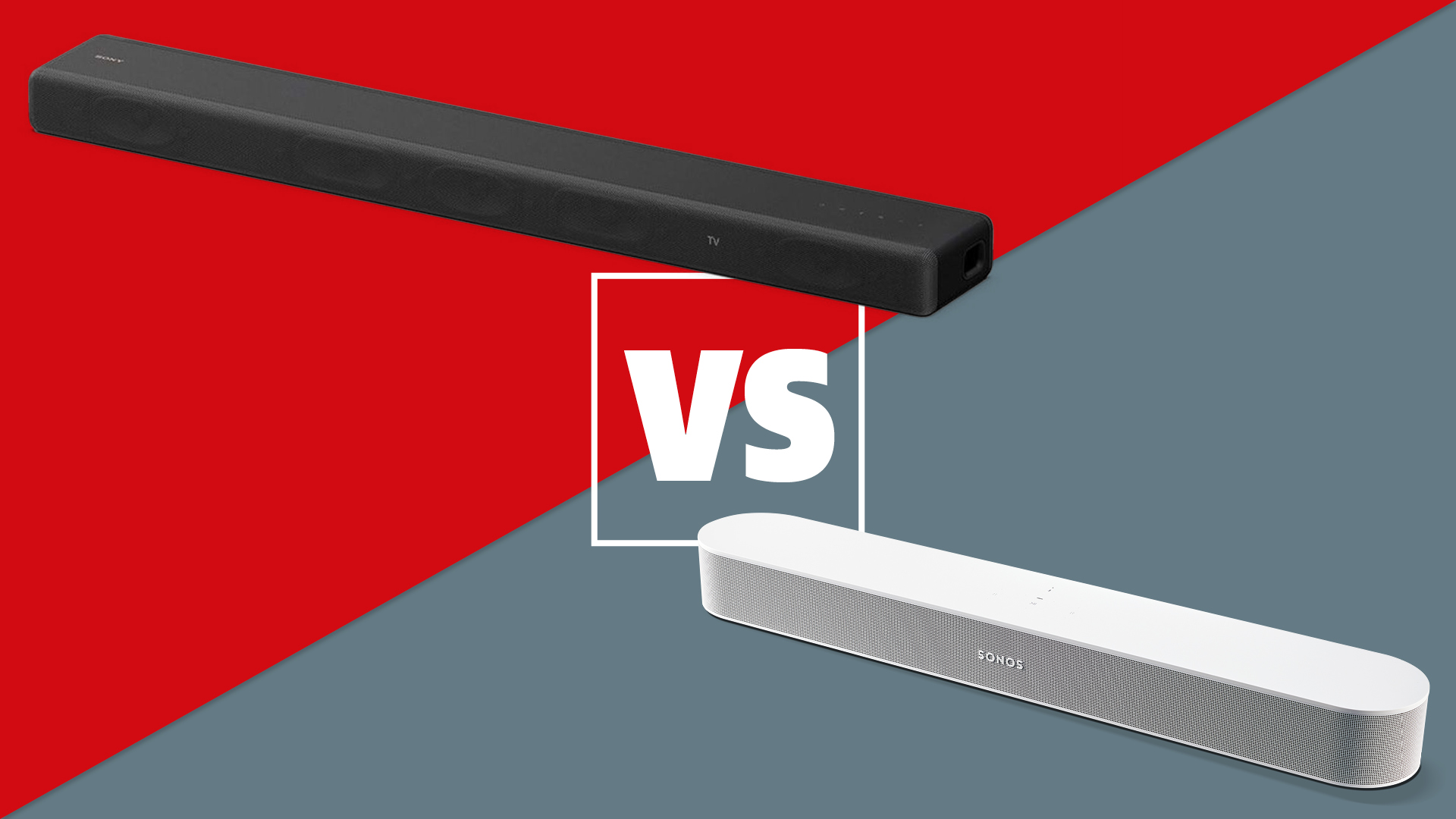
The Sonos Beam Gen 2 is the older of the two, launching at the end of 2021 for £449 / $449 / AU$649. Since then the price has gone up – it now costs £499 / $499 / AU$799. Sonos kit isn't discounted very often, but there are deals to be had – we have seen it for $481 in the US and AU$649 in Australia. So keep 'em peeled.
Sony's rival is similarly priced, at £500 / $700 / AU$800, though again, there are deals around, including as low as $500 in the US.
Winner: Draw
Sony HT-A3000 vs Sonos Beam Gen 2: design
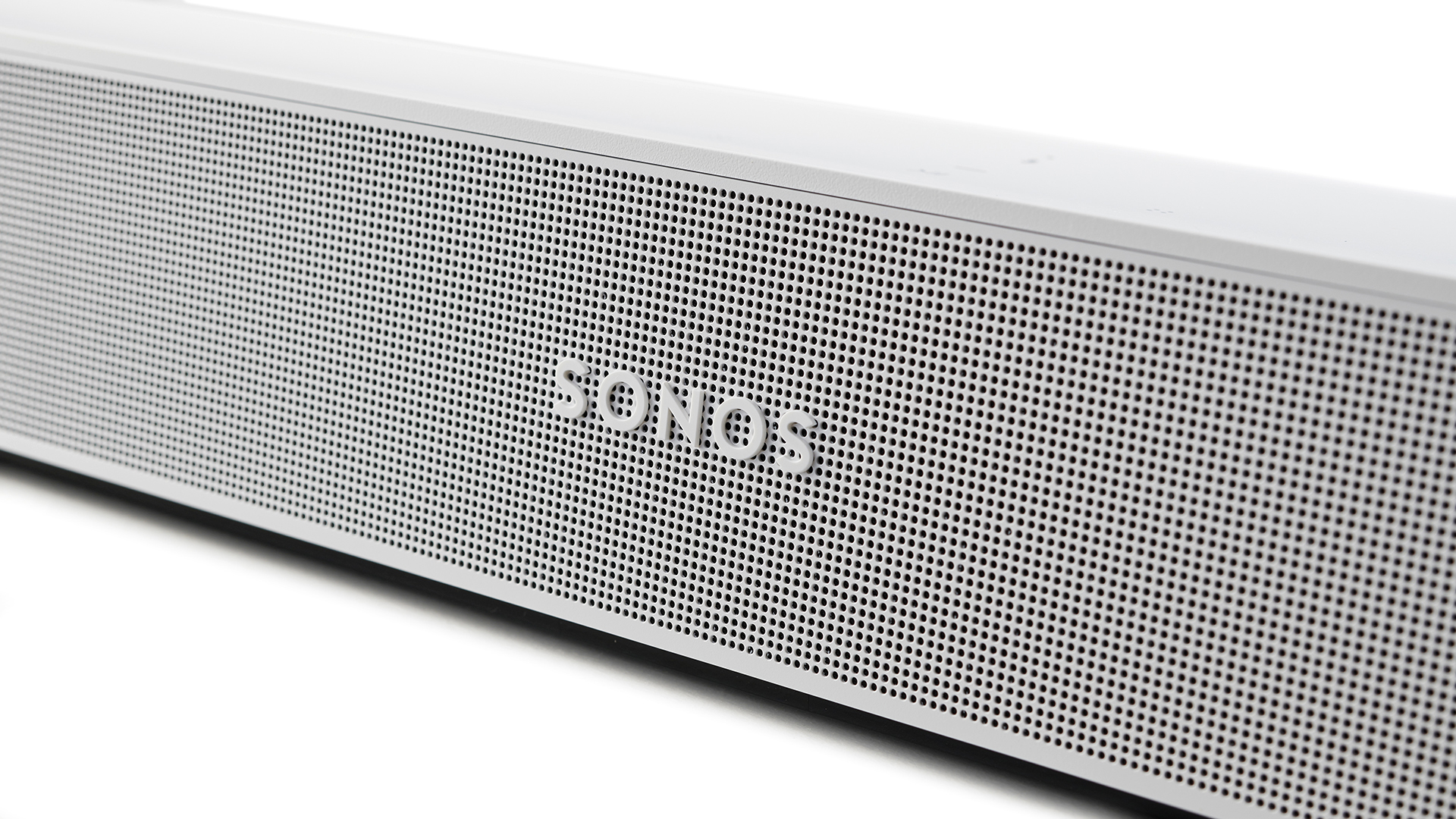
There's not a great difference between soundbars in terms of looks: all are pretty much rectangular units that sit below or just in front of your TV screen.
But look a little closer, and there are quite a few differences.
The Beam Gen 2 looks similar to its first-gen predecessor, with identical dimensions and the same curved edges. But it borrows the same perforated polycarbonate grille from its more expensive sibling, the Sonos Arc. It's more durable and easier to clean than its predecessor's woven fabric version.
This hides four front-facing elliptical mid-woofers and an improved centre tweeter. The drivers are powered by five Class D amplifiers, while three passive radiators provide low-end frequency reinforcement.
Sony's effort is a more boxy affair. It has the same square edges as others in the HT-A series, with a smooth black plastic build and copper accents.
Like the Beam Gen 2, the Sony has capacitive touch buttons on the top. But unlike the Sonos – and most other soundbars – it also has a small built-in display on the front to show which input you are using, update progress status and various other settings. Which is handy.
The HT-A3000 is much bigger and heavier than the Beam Gen 2, and its recessed ports are a bit fiddly to access, especially if you are using stiff HDMI cables. Both devices lack an HDMI passthrough port, so if you want the eARC connection that you will be sacrificing on your TV to be replaced with one on the bar, you will need to spend more.
Winner: Sonos Beam Gen 2
Sony HT-A3000 vs Sonos Beam Gen 2: features
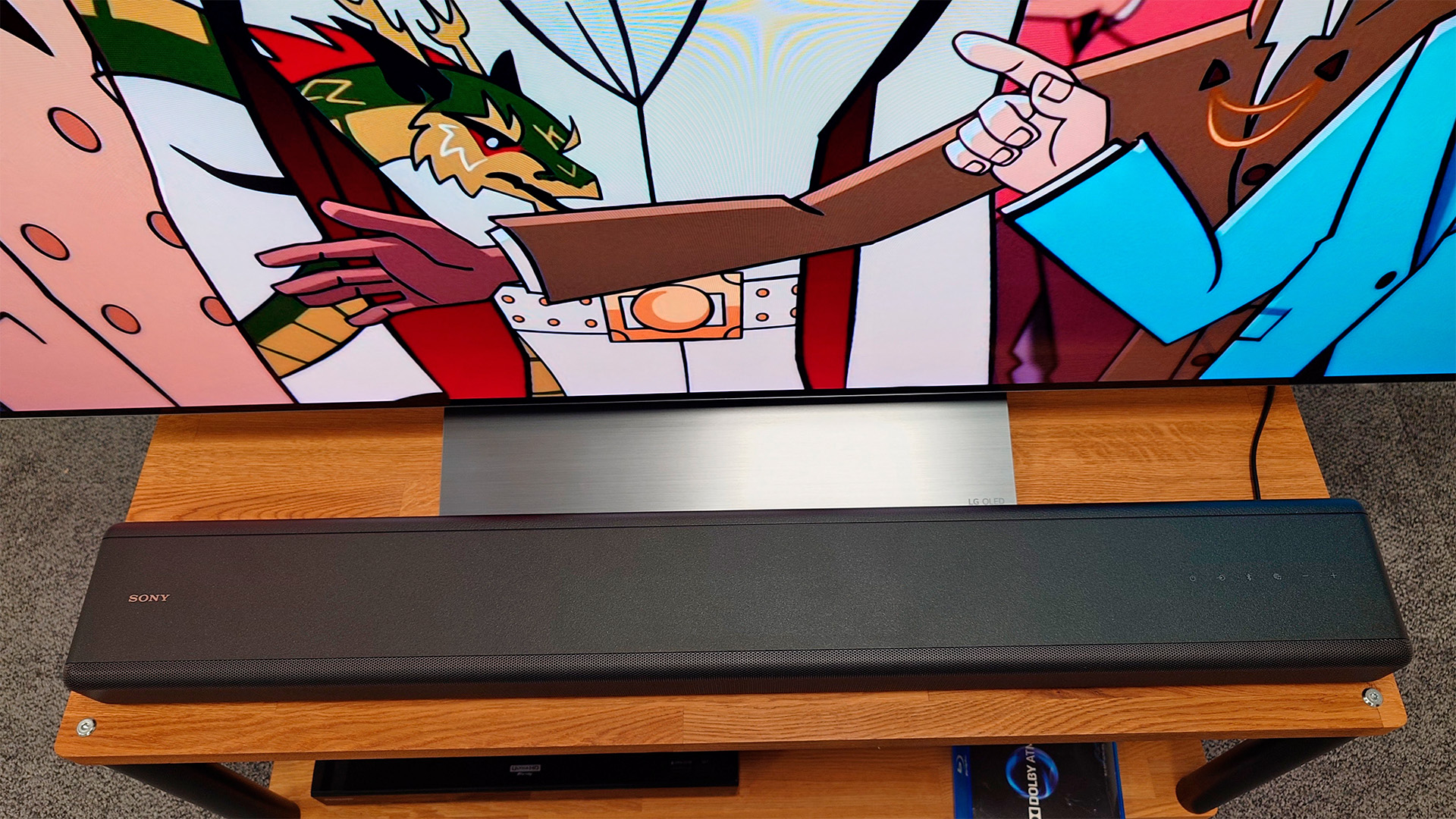
As you would expect from an Award-winner, the Beam Gen 2 is not short of features. As well as the controls on top, it has far-field mics for voice controls via Amazon Alexa and Google Assistant, sockets for power, ethernet and HDMI eARC and a connect/reset push button.
Being a Sonos product, multiroom skills come as standard; the Beam Gen 2 will slot seamlessly into your home Sonos network. You do this via the Sonos app, which also allows room calibration and equaliser controls.
Apple AirPlay 2 and Spotify Connect also come built-in, and it supports Amazon Music Ultra HD audio for lossless 24-bit/48kHz tracks as well as Dolby Atmos Music.
The Sony HT-A3000 isn't quite as well specced in some areas, but is better in others. There's no room calibration system (unless you buy the additional wireless surrounds, that is), and no in-built mics for voice controls (though you can connect the soundbar to an Alexa- or Google Home-enabled speaker to use Alexa or Google Assistant).
It too supports Spotify Connect and AirPlay, plus Google Chromecast, which the Beam Gen 2 doesn't. This being a Sony product, it plays nice with the firm's own LDAC codec, as well as Sony 360 Reality Audio – a spatial audio technology for playing more immersive tracks via Tidal, Amazon Music HD, Nugs.net and Deezer.
Both soundbars support all major Dolby formats, including Dolby Digital, Dolby Digital Plus, Dolby TrueHD and Dolby Atmos. Both also support DTS, but only the Sony can handle DTS:X.
Winner: Sonos Beam Gen 2
Sony HT-A3000 vs Sonos Beam Gen 2: sound
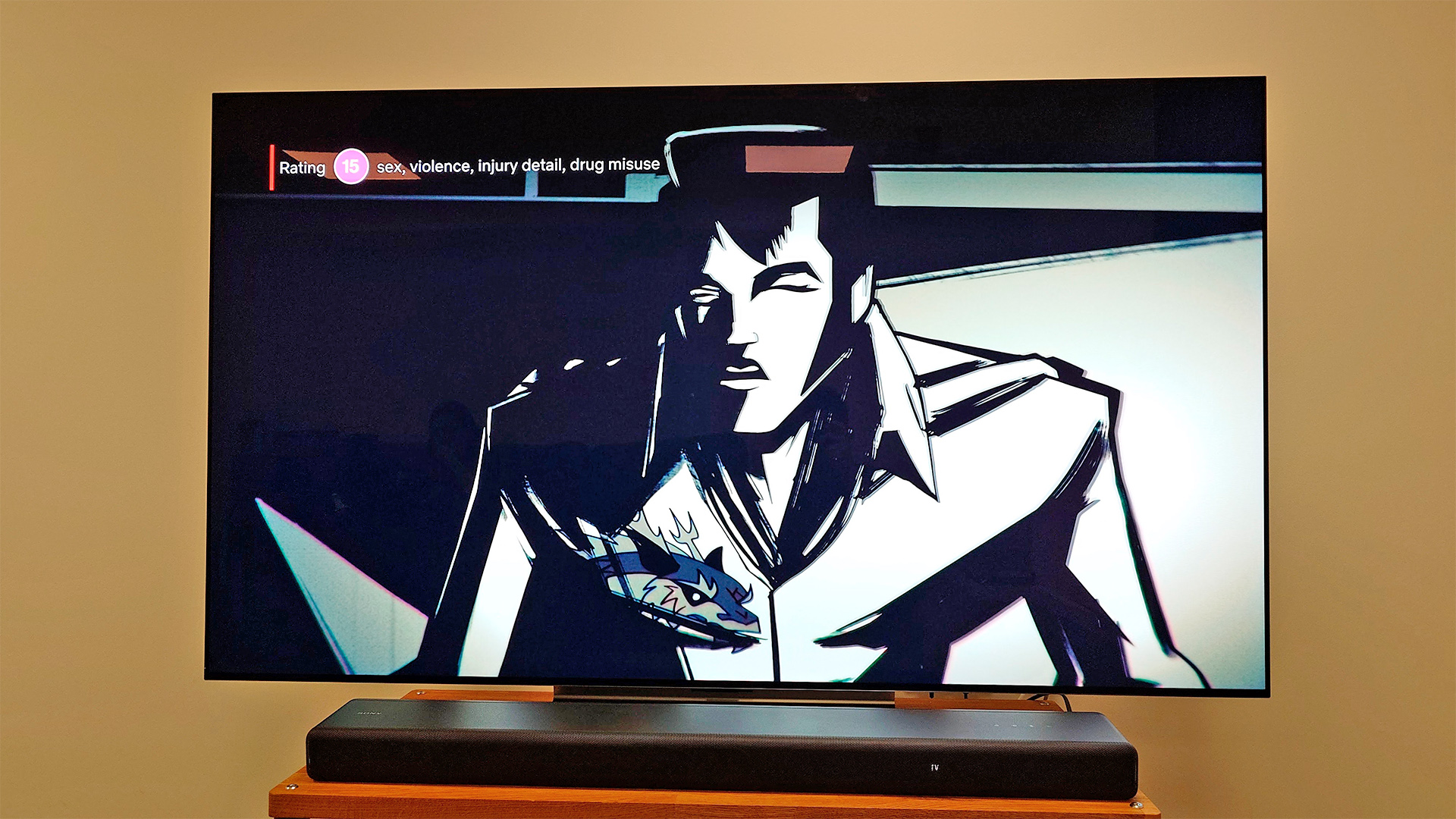
Neither soundbar has upward-firing drivers, instead using virtualisation tech to create overhead sounds for spatial audio formats (Dolby Atmos and, the case of the Sony, DTS:X). This is par for the course at this end of the price spectrum, and the Beam Gen 2 does it better than any other similarly priced soundbar.
Through the Beam Gen 2, Atmos adds tangible motion, depth and space, making the whole experience more immersive. Its expansive soundstage enhances the action from screens of all sizes, expanding the audio far beyond the limits of the display. It's a performance dripping with clarity and accuracy, and just goes to show why the Beam Gen 2 won a What Hi-Fi? Award.
It handles music tracks impressively, too, giving a greater depth of tone than its predecessor. Instruments have ample space to breathe, and the timing – while not perfect – is still impressive.
In comparison, the Sony is good but not great. Dynamics are decent, and dialogue mostly clear, though it could be brought more to the fore. It doesn't project sound as far as we would like, either – the Beam Gen 2 suffers from a similar problem, but with the Sony it is more pronounced.
Voices have a slight sibilance which, once you notice, can be a little off-putting. But its sound is admirably room-filling, and the built-in subwoofer handles the low end with aplomb.
With music, it falls a little flat. The overall presentation is limp and claustrophobic, with none of the scale or openness of the Beam Gen 2.
Winner: Sonos Beam Gen 2
Sony HT-A3000 vs Sonos Beam Gen 2: verdict
The HT-A3000 is a valiant attempt by Sony. And it's really a rather good soundbar – it's versatile, has most of the features you could expect at this money, and doesn't perform badly at all. It's just that the Beam Gen 2 is so good, for the same money, it makes the competition look a little wanting.
Sony diehards who use Sony's own LDAC and Reality 360 formats – and who can't afford the Award-winning Sony HT-A7000 – will get a lot of enjoyment from the HT-A3000. But everyone else will be better served by the Sonos Beam Gen 2.







